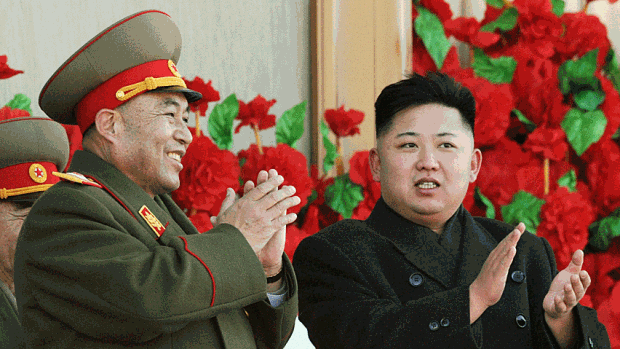Ottawa hosted confidential talks with North Korea on de-nuclearization
Canada quietly hosted high-level officials from North Korea back in the fall — a low-profile effort to convince the police state to respect human rights and abandon its quest for a nuclear arsenal.
CBC News has confirmed that in late September, a five-person delegation from the Democratic People's Republic of Korea (DPRK) arrived in Ottawa for a series of meetings with Canadian bureaucrats.
A senior government official speaking on background said Canada used the two days of discussions "to push for de-nuclearization and present very real human rights concerns directly, face-to-face, with North Korean interlocutors."
It's still not clear how the meeting was first proposed or organized, but the source said Canadian officials welcomed the in-person conversations.
"It's not something Canada has the opportunity to do every day," the source added.
While such high-level contacts with North Korean officials are rare, the official said Canada is not changing how it engages with the regime of Kim Jong-un.
"This is not part of an overall effort to regularize relations."
A spokesman for Global Affairs Canada confirmed the meeting did not "represent a change in the status of Canada's diplomatic relations with North Korea."
"While the recent and ongoing dialogue between the Koreas are encouraging, we remain concerned by the lack of concrete actions by North Korea towards de-nuclearization," wrote Guillaume Bérubé in an email to CBC News.
"In Canada's view, North Korea must demonstrate its willingness to follow through on its announced intentions to de-nuclearize."
In 2010, Canada tightened sanctions on North Korea and put new restrictions on bilateral contacts after a torpedo attack on a South Korean warship killed 46 sailors. A team of international investigators concluded that the torpedo came from a North Korean submarine.
Canada's limited engagement policy states that Ottawa will deal with Pyongyang only on matters of regional security, human rights, humanitarian concerns, inter-Korean relations and consular issues.

The 2018 visit to Ottawa was arranged with the blessing of Canada's close allies, including the United States.
"We are always talking to close partners and allies about our unified approach in terms of applying pressure on North Korea," the official said.
"There are regular exchanges among partners, about how we can work in collaboration, particularly in relation to de-nuclearization. It is a global security concern."
James Trottier is a former diplomat who led four Canadian missions to North Korea and helped negotiate the release of a Canadian pastor imprisoned there. He said he would like to see Canada take further steps to re-establish traditional diplomatic ties with the regime.
"It would put us on a par with our like-minded states, and that would allow us to have a first-hand assessment of a situation in North Korea," he said in an interview with CBC News from Bangkok, Thailand.
It would also "put Canada back into the game in terms of discussions among states" on North Korea, he added.
"Right now, we have limited access and limited information," Trottier said.
The former diplomat cited the example of last January's Foreign Ministers' Meeting on Security and Stability on the Korean Peninsula in Vancouver, which was co-hosted by Foreign Affairs Minister Chrystia Freeland and then-U.S. Secretary of State Rex Tillerson.
Trottier said Canada was at a disadvantage at that summit because, unlike some other western nations, Ottawa has neither a diplomatic presence in Pyongyang nor a representative who visits North Korea regularly. If Canada had first-hand information, he said, "people would welcome Canada, I would say, and Canadian policy makers more at the table than they do right now."

